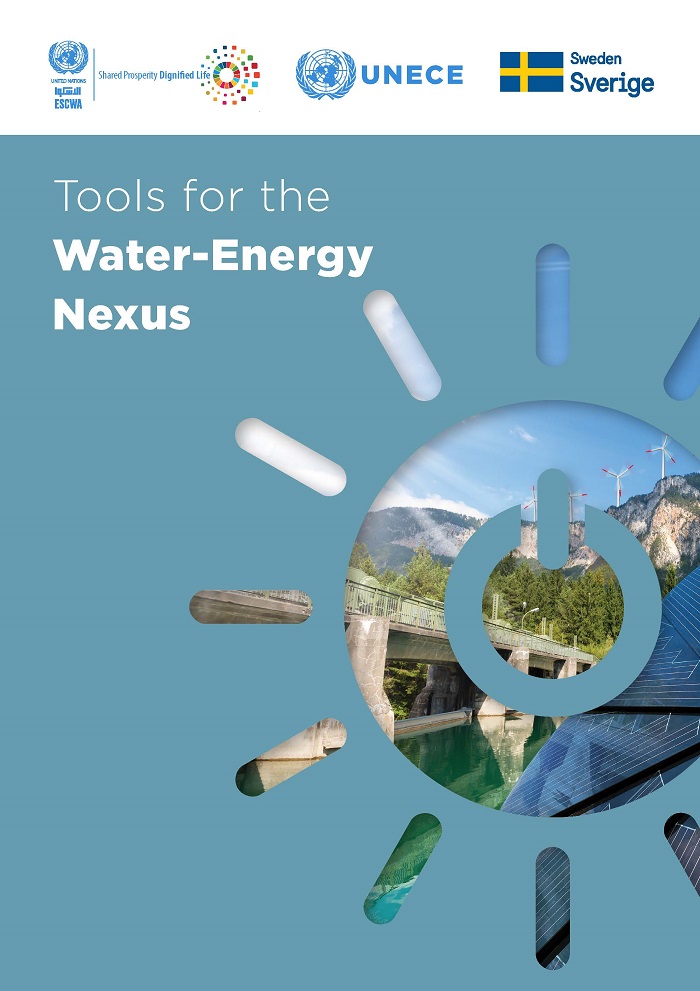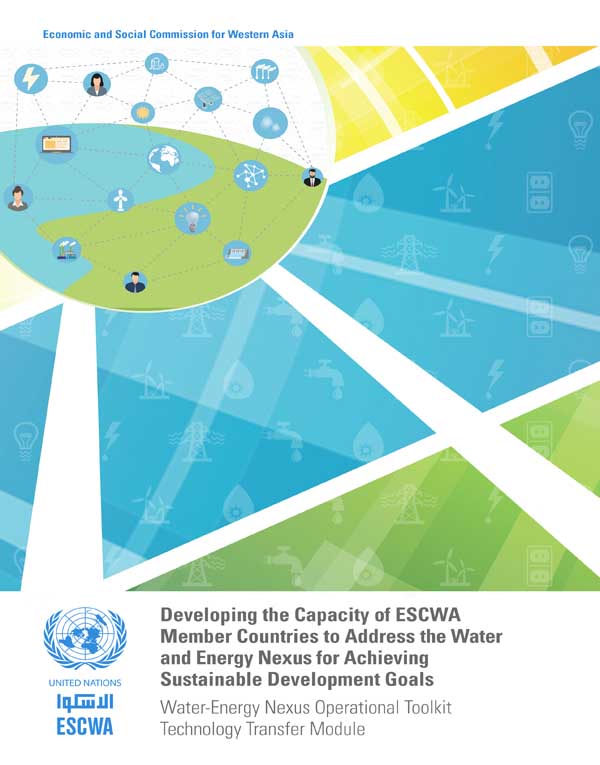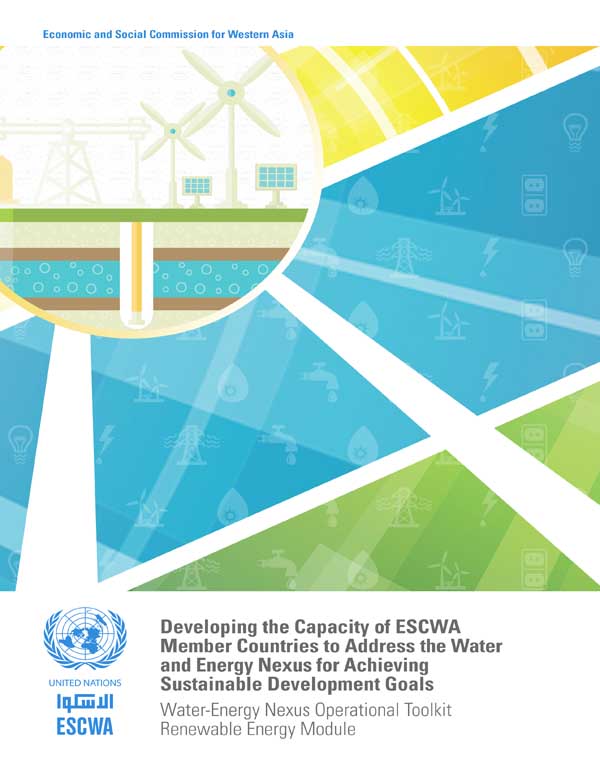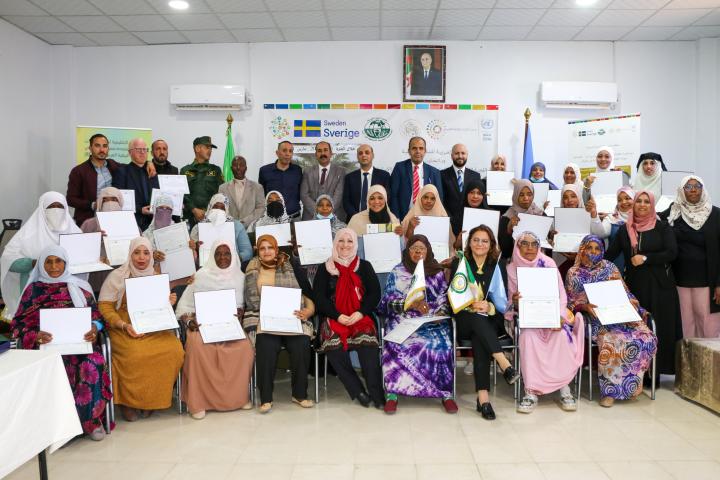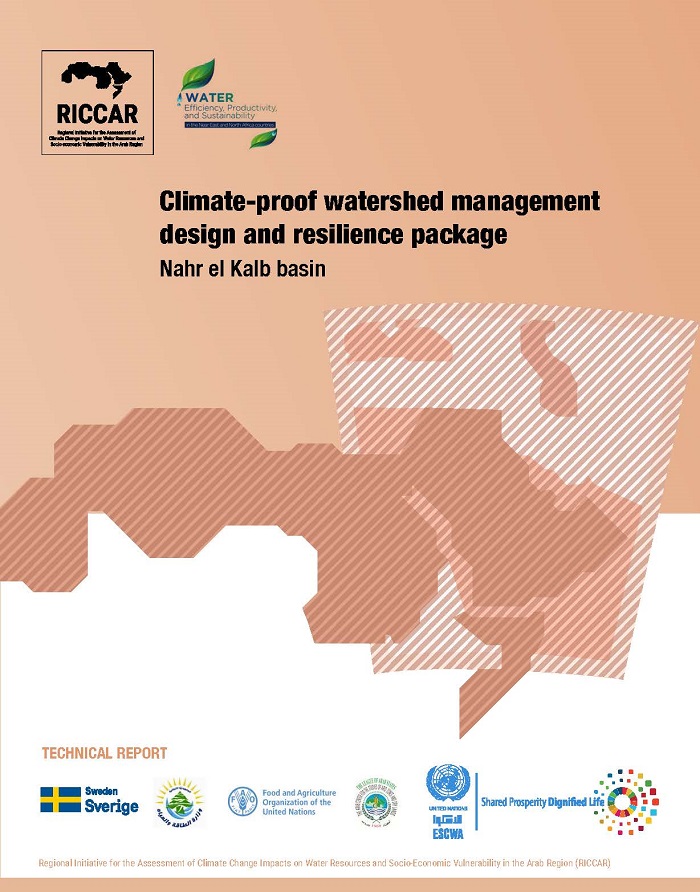
Background
The water-energy-food security nexus framework is particularly suited to the Arab region given the stressors, constraints and strong interdependencies between sectors.
It is further necessitated by the cross-sectoral effect of climate change projected for the region. The understanding of the dynamics of the water and energy sectors it offers is essential for developing effective strategies for the sustainable use of these resources.
As part of its efforts to help member States achieve an integrated approach to the SDGs, ESCWA has implemented a project to develop countries’ capacity to examine and address the water and energy nexus to reduce inefficiencies at both the policy and technical levels.
Our approach
This project was pursued through two parallel and complementary tracks.
- The first targeted high-level officials in ministries for water and energy, who were trained on how to incorporate the nexus in policies and strategies at the national and regional levels through a regional policy toolkit.
- The second track focused on water and energy public service providers and examined the water and energy nexus from an operational perspective.
The two tracks were reinforced through three pilot projects selected by ESCWA based on member States’ expression of interest, and implemented through the provision of technical support and assistance.

